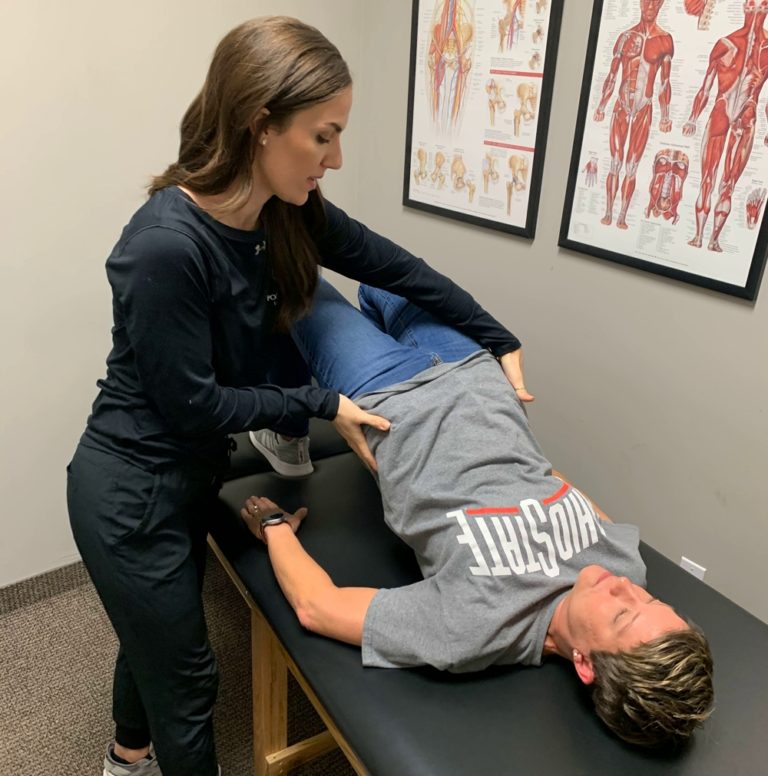Pelvic Rehabilitation Treatment in Jaipur
Pelvic rehabilitation treatment is a specialized form of physiotherapy that focuses on treating conditions related to the pelvic region. The pelvic region encompasses the muscles, ligaments, and tissues that support the pelvic organs, including the bladder, uterus, and rectum. Pelvic rehabilitation treatment in Jaipur is recommended for both men and women experiencing pelvic pain or dysfunction, including urinary or fecal incontinence, pelvic organ prolapse, painful intercourse, chronic pelvic pain, and postpartum pain or dysfunction.
During pelvic rehabilitation therapy, the physiotherapist will assess the patient’s pelvic floor muscles and create a personalized treatment plan based on the specific needs of the patient. Treatment may include a combination of exercises to strengthen and relax the pelvic floor muscles, manual therapy techniques, education on proper bladder and bowel habits, and biofeedback training.
Pelvic rehabilitation treatment clinic in Jaipur is a safe and effective way to alleviate pelvic pain and dysfunction, and can significantly improve a patient’s quality of life. If you are experiencing pelvic pain or dysfunction, it is important to seek the advice of a qualified healthcare professional like Dr. Arvind Jaga. He can assess your condition and recommend a personalized treatment plan to help you achieve optimal pelvic health.
When Should I Go See Pelvic Rehabilitation Treatment?
 You should consider seeking pelvic rehabilitation treatment if you are experiencing any pain or discomfort in the pelvic region or if you are having issues with bladder or bowel control. Pelvic pain and dysfunction can be caused by a variety of factors, including pregnancy, childbirth, menopause, surgery, and trauma.
You should consider seeking pelvic rehabilitation treatment if you are experiencing any pain or discomfort in the pelvic region or if you are having issues with bladder or bowel control. Pelvic pain and dysfunction can be caused by a variety of factors, including pregnancy, childbirth, menopause, surgery, and trauma.
Some common symptoms of pelvic pain or dysfunction include pain during intercourse, difficulty urinating or having a bowel movement, constipation, painful menstrual periods, and pelvic organ prolapse.
It is important to seek the advice of a qualified healthcare professional like Dr. Arvind Jaga if you are experiencing any of these symptoms. He can assess your condition and recommend a personalized treatment plan to help you achieve optimal pelvic health.
Remember, pelvic pain and dysfunction is a common condition and is nothing to be embarrassed about. Seeking treatment from a trained physiotherapist can help you manage your symptoms and improve your overall quality of life.
Pelvic Rehabilitation Treatment benefits:-
Pelvic rehabilitation treatment can provide numerous benefits to patients experiencing pelvic pain and dysfunction. Some of these benefits include:
Improved pelvic floor muscle strength: Pelvic rehabilitation treatment can help patients strengthen their pelvic floor muscles, which can improve bladder and bowel control and alleviate pelvic pain.
Reduced pelvic pain: Pelvic rehabilitation treatment can help reduce pelvic pain caused by a variety of conditions, including endometriosis, vulvodynia, and pelvic floor dysfunction.
Improved sexual function: Pelvic rehabilitation treatment can help patients improve their sexual function and reduce pain during intercourse.
Better quality of life: Pelvic pain and dysfunction can have a significant impact on a patient’s quality of life. Pelvic rehabilitation treatment can help alleviate symptoms and improve overall well-being.
Non-invasive treatment: Pelvic rehabilitation treatment is a non-invasive, non-surgical treatment option that can provide significant relief without the need for medications or surgery.
Improved confidence and self-esteem: Pelvic pain and dysfunction can be a source of embarrassment and shame for some patients. Pelvic rehabilitation treatment can help improve confidence and self-esteem by providing relief from symptoms.
Overall, pelvic rehabilitation treatment can help patients achieve optimal pelvic health and improve their quality of life. If you are experiencing pelvic pain or dysfunction, consider seeking the advice of a qualified healthcare professional like Dr. Arvind Jaga to discuss treatment options.
